- Homepage
- Automotive
- Packaging
- Consumer goods
- Construction
- Contact
Allow for a better future
RUSAL’s ALLOW aluminium empowers our customers to reduce the carbon footprint of their products
In a carbon-constrained world the future of aluminium is ALLOW
-
ALLOW enables our customers to contribute to their climate change strategy.
-
ALLOW aluminium is made from renewable hydropower and it enables our customers to deliver products with a lower CO2 footprint to make a positive impact for society.
RUSAL offers to its clients independently verified carbon footprint statements from the smelter of origin to perform Life-cycle assessments of products
Key features of allow
-

Guaranteed low CO2 footprint: less than 4t CO2 /t of aluminium (smelter direct and indirect emissions only).
-

Carbon footprint statement with third-party verification
-

Traceable to a single smelter
-

Available worldwide
PHILOSOPHY & allow benefits
The RUSAL company and culture is built on a climate cornerstone, because we believe that protection of the environment and the reduction of CO2 emissions are of fundamental importance. Currently, RUSAL has one of the lowest carbon footprints in the industry because of the benefits of its access to clean, renewable hydropower in Siberia. We aspire to continue our environmental stewardship progress, and have set an achievable goal of at least 95 percent renewable hydropower or other carbon free power generation by 2025.
RUSAL currently sources 90 percent of the electricity for its aluminium smelters from hydropower, and that’s critical because enormous amounts of electricity are required in the aluminium production process. RUSAL’s core smelting operations are favorably located close to Siberian hydropower plants, and allow RUSAL to perform as a global aluminium leader with one of the lowest CO2 footprints in the industry. We have the experience to know that the true environmental benefits of using eco-friendly aluminium begin with primary producers who seek to be good stewards and accept the responsibility of setting low carbon industry standards. It’s a value that defines leadership for our 61,000 employees.
Part of that responsibility means not just producing ALLOW, our low-emissions aluminium, but ensuring that our process and reporting are fully transparent. That means that our low CO2 metrics need to be visible, readily accessible, easily understood – and verified by independent third-party certification.
Sustainability is the new foundation for global industrial policy, and will be for decades to come. RUSAL is exceptionally positioned to fuel this new energy world order, and we’re excited to launch our new ALLOW brand of aluminium.

The scientifically driven fight to understand that climate change is happening now, and that the negative impacts of global warming on our environment and economy must be curbed, is a global challenge. The numbers are sobering, and it’s no coincidence that 15 of the 16 warmest years on record have come since the turn of a new century. RUSAL accepts a leadership role in mitigating carbon-related climate damage by producing aluminium with renewable power sources and advanced process technologies at smelters.
The dire consequences of climate change – polar ice melt, sea level rise, disrupted rainfall patterns, heat and drought, amped-up cyclones and flooding storms – are factors that lead to increased human health risk and disease exposure, reduced access to food and water, climate migration and resource conflict. Damage to fragile ecosystems and the species that need them extend the dire scenario beyond humans. The Paris Climate Accord was a milestone achievement and a collective recognition of the magnitude of humanity’s shared problem. It is now time to act, with a coordinated global approach to drive the transition to a net-zero emissions, carbon-neutral global economy. Transformation of this magnitude requires reliable partners, and RUSAL is poised to provide low-emissions ALLOW aluminium to build a new world.
Today, the CO2 footprint of materials matters more and more, and we are therefore proud that aluminium is part of the climate change solution.
Aluminium is one of the most environmentally friendly metals in terms of a low CO2 footprint tied to how it is produced and applied. That’s 20 percent less than steel, and the lowest footprint of any competing materials. It is light, durable, weather- and corrosion-resistant, affordable and plentiful. It’s an easily worked metal, and can be easily recycled. When applied – in sustainable construction, consumer goods, the energy-efficient transportation sector and more – aluminium contributes significantly to global environmental well-being and is already hard at work building a new future.
The greatest downside of aluminium production is the emissions related to high electricity consumption. The existing and historical processes are energy-intensive, as aluminium smelters consume about 4 percent of the global electrical power output each year. Most of that power is generated by fossil fuel systems, with coal-fired sources providing the bulk of the energy. That’s meant for increased CO2 emissions as 25 million tons of capacity was added to meet demand in the last decade. Overall, the smelters account for about 80 percent of all greenhouse gas emissions in the industry. As a result, the average CO2 footprint of the aluminium industry has increased at an alarming rate.
Yet not all aluminium is equal, and RUSAL is proud to say more than 90 percent of our aluminium production is sourced by hydropower. That makes the carbon footprint (t CO2 per mt of aluminium) of primary aluminium produced just a fraction of the footprint of fossil fuel sources. Coal-fired power is almost five times higher, while the hydropower is less than half the amount of natural gas sources.
Part of that responsibility means not just producing ALLOW, our low-emissions aluminium, but ensuring that our process and reporting are fully transparent. That means that our low CO2 metrics need to be visible, readily accessible, easily understood – and verified by independent third-party certification.
Hydropower is the only renewable power source that can deliver a stable, round-the-clock supply that’s robust enough to sufficiently power industrial facilities while flexible enough to quickly adjust for peak. The dams may help to prevent floods, mitigate drought, and facilitate an increase in shipping traffic, while reservoirs reduce the concentration of pollutants in rivers and ultimately improve water quality.
New hydropower generation solutions are more efficient, creating higher rates of power production using the same volumes of water, and RUSAL benefits from Russia’s hydropower resources. It’s the fifth- largest market in the world for installed hydropower capacity and generation, and Russian rivers have the potential to generate over 850 billion kWh of carbon-free electricity a year. This amount of energy exceeds the annual power consumption rates of Germany, France, Canada and South Korea – while, according to World Bank, reducing annual global emissions by some 2.8 billion tons of CO2 equivalent. All of these hydropower advantages in producing ALLOW are in the aluminium throughout its lifecycle, continuing the sustainability benefits for end users and passing through to its later recyclable forms.
Not all primary aluminium is equal
Carbon footprint T CO2 per MT of Aluminium

RUSAL decreased our specific GHG’s emission per tonne of aluminium produced
by more than 57 percent since 1990.
RUSAL’s target climate change goals to be reached 2025:
to ensure that our aluminium smelters purchase at least 95% of their electricity from hydroelectric power plants and other carbon free power sources.
to achieve an average level of specific direct and indirect energy related greenhouse gas emissions from reduction processes not exceeding 2.7 t of CO2e/t of aluminium at our aluminium smelters.
to reduce direct specific greenhouse gas emissions by 15% compared to 2014 through reduction processes at the existing aluminium smelters.
to use an internal carbon price when making strategic and investment decisions starting in 2017.
to reduce direct specific greenhouse gas emissions by 10% compared to 2014 at our existing alumina refineries.
to support Russian and international initiatives and associations advocating active actions to mitigate the effects of climate change and supporting carbon prices as long as they are aligned with the strategic goals of the Company.
to reduce specific aluminium smelters’ power consumption by 7% as compared to 2011.
